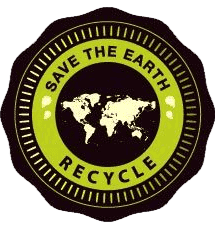Conserving water can be important for multiple reasons. Not only does it harm the environment in general, but it also means that you have to pay more while ‘using’ the same amount of water overall. Finding small ways to conserve some can make a huge difference in your daily life.
Install New Fixtures
One of the most common issues with old bathroom and kitchen fixtures is how inefficient they can be. Many homes that still use old systems have issues with how much water is needed to flush toilets, which can easily lead to problems later on.
Rent a dumpster in the community of Bulger, Pennsylvania with Eagle Dumpster Rental of Washington County.
Taking them out, tossing them in a dumpster, and installing some new ones is the easiest solution. While replacing some fixtures might be costly, to begin with, new fixtures can save a lot of money and give you better results from day-to-day usage, along with any other features that they might have.
Manage Water Usage
You can save plenty of water simply by limiting and managing how you use it. Turning off the faucet when you are not actively needing the water flow, like brushing your teeth or washing dishes, can save a lot of money in the long term.
A huge majority of your daily water will simply get wasted, so the less you use per day, the less you are likely to lose. This can quickly add up to massive water savings over time. Properly managing when you use your water also matters when trying to avoid high prices too.
Water your Lawn Carefully
Watering your lawn at the right times can minimize the chance of evaporation. This allows more of the water to stay in the grass, ensuring that only a small amount evaporates away. Colder hours or periods with little sunlight are often best.
Be sure to use a sprayer where possible instead of an open hose end. This allows better control over the amount of water you are using and the direction that it is being sprayed in. Sprinklers can work, but they often waste a lot of water, and mist-based sprayers are a very wasteful option.
Shower Smart
Always be prepared to take a short shower instead of a long one, and do not treat yourself to longer ones too often. Conserving water is important, so you might want to try and take shorter showers on workdays, reducing how much water you waste for almost the full week.
You can also avoid this problem by being smarter with when you shower, as well as improving the shower fixtures themselves. The less water you are using, the better, so taking fewer showers or limiting the time spent in each showering ‘session’ can make a big difference.
Avoid Cleaning with Water
Do your best to minimize how much water you use for cleaning purposes. For example, it might be tempting to hose down your driveway or deck, but this is a lot of water wasted for effectively no reason. A broom can have the same benefits, and even using a mop can be more water-efficient.

This is true for washing your car, too. A bucket of water filled with soapy suds is only one bucket, whereas spraying it down with a hose might waste several buckets. Carefully control how much water you are using to clean, and only spray with hoses when absolutely necessary.
Store your own Water
Rain barrels are an incredibly useful option for conserving water. If you are clearing out an old bathroom and throwing most of the appliances into the dumpster, you might even consider leaving the old bath or sink out to catch rainwater. The more you catch, the less you need to pay for.
This natural water might not be safe to drink, even if you try to purify it, but it can serve many other purposes: cleaning, watering plants, helping animals cool off. If you have a purifying system, then you might be able to repurpose it for other things, too, like washing dishes.
Take Advantage of Water Sources
Water can behave in strange ways, but there are a lot of water sources in the world around you. If you have a dumpster rental out front that gets flooded with rainwater, use some of that to water your grass. If you have a stream out back, scoop some out to clean down a nearby path.
Using your water intelligently will allow you to get the same results while using less of your residential water supply and can reduce your overall water consumption as a whole. The less you use, the better your water habits are.
Limit Your Overall Water Consumption
In general, reducing how much water you are using is a good idea. This does not mean you drink less – instead, try to avoid any situation where you are wasting water for no reason. This could include garden water features, watering plants that do not need it, or keeping reserves of tap water that you will not use.
The less you rely on your regular water supply, the cheaper it becomes, and the less you harm the environment. Even resorting to water barrels and other natural supplies can be better, although those may not be safe to drink, and many require some extra thought.
Remember that every single home and lifestyle is different, so some people may require more water than others for particular reasons. If you keep indoor plants or pets, more water might be used up per day, but you can still massively reduce your consumption with a few small changes.
